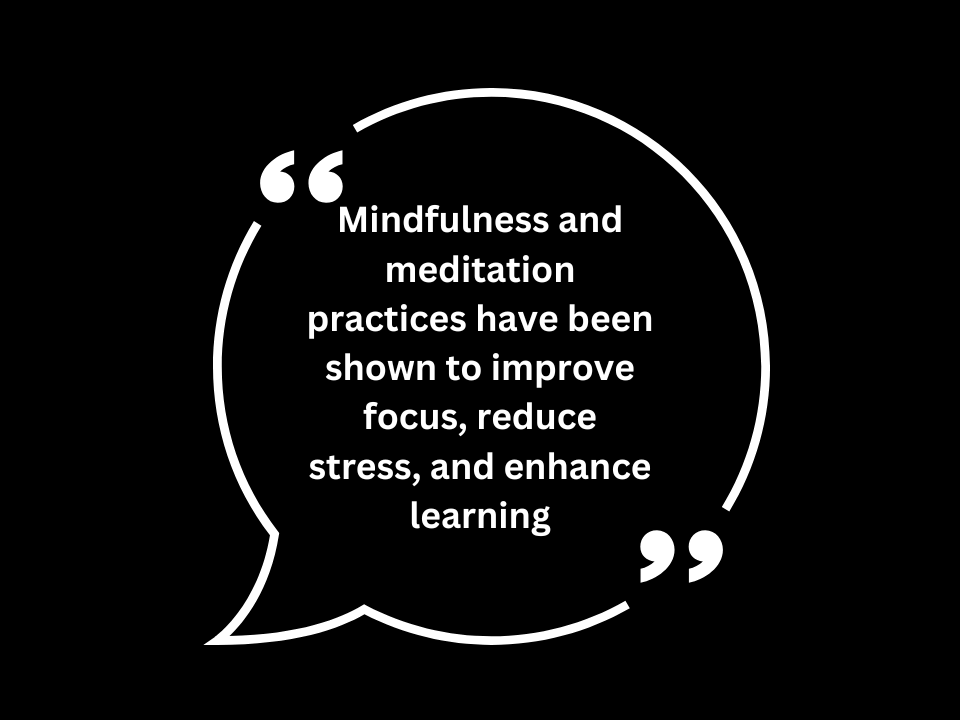Best 70 psychology facts about study

Have you ever wondered what goes on in the human mind when we study? How do our brains handle information and how can we maximize our learning potential? These are some of the questions that psychology seeks to answer. Psychology is a fascinating field that explores human behavior, thoughts, and emotions through scientific research. In this blog post, we’ll delve into some interesting psychology facts about study that will help you understand your own learning process better. So grab a cup of coffee and let’s dive in!
The definition of psychology
Psychology is the scientific study of human behavior, thoughts, and emotions. It seeks to understand how people think, feel, and act in different situations. Psychology aims to explain why we behave the way we do and what motivates us to make certain choices.
One key aspect of psychology is that it focuses on observable behaviors as well as internal mental processes such as perception, memory, and attention. Psychologists use a variety of research methods including experiments, surveys, observations, and case studies to gain insight into these processes.
Another important aspect of psychology is its emphasis on individual differences. No two people are exactly alike when it comes to their personalities or ways of thinking. Psychologists strive to identify patterns in behavior across different individuals while also recognizing each person’s unique qualities.
Psychology offers valuable insights into human nature that can be applied in many areas such as education, businesses or healthcare settings. By understanding more about ourselves through psychological research we can improve our lives both individually and collectively within society.
The history of psychology
The history of psychology dates back to ancient Greece where philosophers like Socrates, Plato, and Aristotle explored the nature of human behavior. However, it wasn’t until the late 1800s that psychology became a recognized field of study. Wilhelm Wundt is often called the father of modern psychology for his establishment of the first psychological laboratory in Leipzig, Germany in 1879.
After Wundt’s lab was established, other psychologists began to emerge with their own theories and ideas about human behavior. One such psychologist was Sigmund Freud who developed psychoanalysis which focused on unconscious thoughts and emotions as well as childhood experiences shaping adult personality.
Behaviorism emerged in the early 20th century thanks to John Watson and B.
F. Skinner which emphasized observable behaviors rather than internal mental processes. In contrast, cognitive psychology emerged during the mid-20th century focusing on how people process information.
Today there are numerous branches within psychology including clinical psychology, social psychology, developmental psychology among others all contributing to our understanding of human behavior throughout history.
These Are 70 psychology facts about study

1. Spaced repetition is more effective for long-term retention than cramming.
2. Taking breaks during study sessions can enhance focus and productivity.
3. The environment in which you study can affect your performance.
4. Active learning techniques, such as summarizing and teaching others, improve understanding and retention.
5. Writing notes longhand leads to better memory and understanding compared to typing.
6. The use of visual aids, such as diagrams and charts, can enhance learning and recall.
7. Multitasking while studying reduces overall efficiency and comprehension.
8. Getting enough sleep is crucial for memory consolidation and optimal cognitive functioning.
9. Testing yourself through quizzes and practice tests enhances learning and long-term retention.

10. Exercise boosts cognitive function and can improve learning abilities.
11. High-stress levels hinder concentration and memory retrieval.
12. Breaking complex tasks into smaller, manageable chunks improves learning outcomes.
13. Color-coding information can aid in memory and organization.
14. Mindfulness and meditation practices can improve focus and attention during studying.
15. Mnemonic devices, such as acronyms and visualization techniques, help in remembering information.
16. The use of positive self-talk and affirmations can enhance motivation and confidence while studying.
17. Prioritizing difficult or challenging tasks at the beginning of a study session leads to better learning outcomes.
18. Background music can either enhance or hinder concentration, depending on the individual.
19. Taking handwritten notes during lectures improves comprehension and retention.
20. Regularly reviewing previously learned material strengthens memory and prevents forgetting.
21. Teaching others the material you’re studying reinforces your own understanding and memory.
22. Personalizing and relating new information to existing knowledge enhances learning and retention.
23. Discussing and debating concepts with peers can deepen understanding and critical thinking skills.
24. Taking breaks to engage in physical activity or movement can improve attention and focus.
25. Setting specific, achievable goals can increase motivation and persistence in studying.
26. Variety in study materials and approaches helps prevent boredom and improves memory.
27. Using mnemonic techniques like acronyms, visualization, and rhymes aids in remembering lists and sequences.
28. Creating a dedicated study schedule or routine promotes consistency and discipline.
29. Incorporating rewards and positive reinforcement after completing study tasks can increase motivation.

30. Believing in your own ability to learn and succeed (self-efficacy) enhances academic performance
31. The spacing effect states that studying material over several sessions is more effective than cramming it all at once.
32. Taking breaks during study sessions improves focus and retention.
33. The environment in which you study can impact your performance and learning.
34. Active learning techniques, such as engaging in discussions or teaching others, enhance understanding and memory.
35. Writing notes by hand helps you remember information better compared to typing.
36. Sleep plays a crucial role in memory consolidation, so getting enough sleep after studying is beneficial.
37. Multitasking while studying leads to decreased productivity and poorer learning outcomes.
38. Visualization techniques, such as creating mental images or mind maps, aid in remembering information.
39. Reviewing previously learned material before starting a new study session reinforces memory and facilitates learning.
40. Taking practice tests or quizzes helps in retrieving information and identifying areas of weakness.
41. Breaking down complex information into smaller, manageable chunks enhances comprehension and retention.
42. Teaching someone else what you’ve learned reinforces your own understanding of the material.
43. Emphasizing meaningful connections between new information and prior knowledge improves learning.
44. Physical exercise has been shown to boost cognitive function, including memory and attention, which can aid in studying.

45. Incorporating a variety of study methods, such as reading, summarizing, and practicing, enhances learning.
46. Using mnemonic devices, like acronyms or visualization techniques, can aid in remembering lists or sequences.
47. Regularly reviewing material over time, even after you think you’ve mastered it, helps prevent forgetting.
48. Joining study groups or engaging in collaborative learning can enhance comprehension and provide different perspectives.
49. Spreading out study sessions across different times of the day can help optimize learning based on individual preferences.
50. Mindfulness and meditation practices have been shown to improve focus, reduce stress, and enhance learning.
51. Taking handwritten notes during lectures or while reading promotes active engagement and information processing.
52. Chunking information into meaningful groups or categories aids in memory and retrieval.
53. Discussing and debating concepts with others stimulates critical thinking and deepens understanding.
54. Finding personal relevance or real-life applications for what you’re studying enhances motivation and engagement.
55. Asking questions and seeking clarification when faced with challenging material promotes deeper understanding.
56. Providing yourself with regular positive reinforcement and rewards for completing study tasks can increase motivation.
57. Utilizing digital tools and resources, such as educational apps or online platforms, can enhance interactive learning experiences.
58. Breaking down complex concepts into simpler explanations and teaching them to others enhances your own understanding.
59. Utilizing a variety of sensory modalities, such as visual aids or auditory cues, can enhance learning and memory.

60. Incorporating regular review and self-testing into your study routine helps strengthen long-term memory and recall.
61. The generation effect suggests that actively generating information, such as by summarizing or explaining concepts in your own words, enhances learning and retention.
62. Procrastination, or delaying or postponing studying tasks, can lead to increased stress and poor learning outcomes. Implementing effective time management strategies can help overcome this tendency.
63. Encoding specificity principle suggests that information is better remembered when the conditions during study match the conditions during retrieval. Creating similar contexts can aid recall.
64. Mnemonic techniques, such as acronyms, visualization, or rhymes, can assist in remembering and recalling information.
65. Working memory capacity, the limited capacity of working memory, impacts the amount of information that can be processed and retained during studying.
66. Deep processing, which involves engaging in meaningful processing, making connections, and relating new information to existing knowledge, promotes better understanding and retention.
67. Social facilitation, studying with others or in a group, can enhance motivation, accountability, and provide opportunities for discussion and clarification.

68. The planning fallacy refers to underestimating the time required to complete studying tasks, which can lead to rushed or incomplete preparation. Allotting ample time can mitigate this effect.
69. Proximity effect suggests that we tend to remember information that is physically or conceptually close together more easily.
70. Self-regulated learning, taking control of one’s learning process by setting goals, monitoring progress, and adjusting strategies, can improve studying effectiveness.
The different types of psychology

Psychology is a broad field that covers different types of studies. Each type has its own objectives, techniques and methodologies, which are used to understand human behavior.
One of the most common types of psychology is clinical psychology, which deals with diagnosing and treating mental health disorders. It involves working with patients who have depression, anxiety or other psychological problems.
Another type of psychology is developmental psychology, which focuses on studying how people change over their lifespan. This can range from infancy to old age and includes topics such as cognitive development and socialization.
Social psychology looks at how individuals interact within groups and society as a whole. This area examines topics such as conformity, group dynamics, persuasion and prejudice.
Cognitive psychology investigates mental processes such as perception, attention, memory and problem solving. The aim is to study how humans process information in order to better understand why we behave the way we do.
There are many different types of psychology each with unique approaches but all aimed at understanding human behaviour in different contexts.
Conclusion
To sum up, psychology is a fascinating field that seeks to understand human behavior and mental processes. From its humble beginnings as a philosophy branch, it has evolved into a scientific discipline with various subfields such as clinical, social, developmental, and cognitive psychology.
As we have seen in this article about the psychology facts of studying, there are many interesting insights that can help us become more effective learners. By understanding how our brains work and using evidence-based techniques for studying, we can improve our academic performance and achieve our goals.
Also Read: 31 Facts About Love, You Must Know To Understand It
GTB Team is responsible for crafting outstanding content and ensuring the best user experience. Most of the Jokes, Quotes, Trivia Questions, Quizzes, Etc.. are produced by GTB Team.






